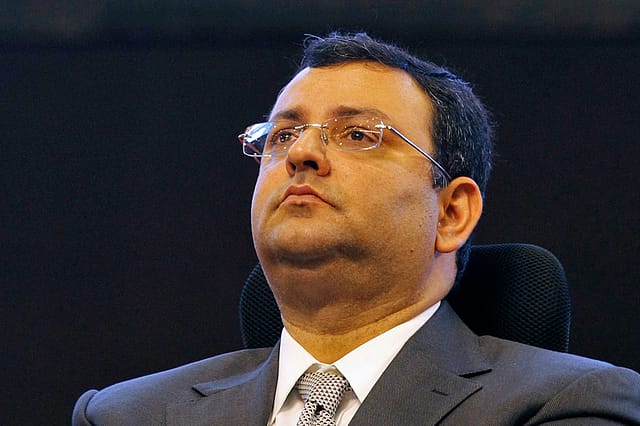For a Pound of Steel

In the early 20th century, as an old legend goes, when the chief commissioner for the Indian Railways of the time Frederick Upcott heard that Jamsetji Tata & Co wanted to make steel rails to British specifications, his response was one of utter disbelief. "Why," Upcott is on record as having exclaimed, "I will undertake to eat every pound of steel rail they succeed in making." By 1907, Tata's dream project had well and truly taken shape in Jamshedpur, where the industrialist put up a steel plant. Four years later, its furnaces were turning out steel that was good enough for trains to run on (if not for people to eat). So, in 2007, when Tata Steel celebrated its centenary by acquiring an Anglo-Dutch steelmaker called Corus, it was hard not to detect a flicker of irony in the glow of pride.
If $12.6 billion was too much to pay for it, few analysts said so. And if a recession was all it would take to cripple the commercial logic of the acquisition, few foresaw it. The deal was hailed as a wise move just about everywhere, even in the UK. As it turns out, Corus has been nothing but a drain. 'Stop loss' action is now underway in full force. Under Cyrus Mistry, who took over as Tata Group's chairman from Ratan Tata at the end of 2012, Tata Steel has signed an agreement to sell its 'long products' unit in the UK—the one that makes things like rails and accounts for 4.5 million tonnes of its 10.5-million-tonne capacity in the country—to Greybull Capital for a 'nominal' sum of £1. Yes, one quid, 'in exchange for Greybull Capital taking on the whole of the business, including assets and relevant liabilities, and securing an appropriate funding package,' as Tata Steel's official statement says. While details are awaited, it looks likely that pensions and past debt are not among the liabilities deemed 'relevant'. The primary objective might actually be to safeguard jobs at the firm's Scunthorpe plant (and a few others), an issue that's had the British government worried ever since the Tata Group put all its UK steelworks on the block. An estimated 4,800 employees are said to be sighing in relief.
Openomics 2026: Continuity and Conviction
06 Feb 2026 - Vol 04 | Issue 57
The performance state at its peak
Should shareholders of Tata Steel join them? This is not so clear. Any asset sold for £1 sounds like more than your usual distress sale, but analysts say shareholders of Tata Steel ought to be pleased. Such was the pessimism over the UK operations that the very existence of a buyer has been taken as welcome news. On 11 April, the company's share price gained 2.5 per cent in response. 'Good riddance' seems to be the street sentiment. Ever since the Great Recession kicked in, Corus has been a great big ball of iron threatening its buoyancy. The debt burden was bad enough, with Tata Steel stalked all these years by that O word: over-leverage. The acquisition, after all, was made with loans taken for the purpose. And the European slump in demand has meant that year after year, while Tata Steel's Indian operations have done exceedingly well, overseas losses have ruined its overall performance. China, meanwhile, had been expanding capacity as if the entire planet needed to be girdled in steel, and its slowdown has only magnified a story of out and out oversupply. Global steel prices have been softening to the point of putty over the past year or so. Given the weak demand around the world, this downtrend is likely to persist for longer than weak steelmakers can stay afloat.
That Tata Steel was at risk of shutting down, however, is an exaggeration. Its domestic business is a model of low input costs and high efficiency, and so long as the Group wants to make steel, it'll probably make sure it does. If push comes to shove, Tata Sons can unburden the company of debt with cash raised by unloading another big chunk of TCS equity onto the share bazaar. Such a 'big daddy' bailout would not be pretty, but it's one of the privileges of being part of a $100 billion diversified conglomerate—and also the reason shareholders are assured of its survival.
Yet, it's hard to escape what Tata's tryst with British steel has to say about India Inc's quest for MNC-hood in this era of globalisation. Back in 2007, the Group had got into a bidding war for Corus with a Brazilian firm, and this should've flagged apprehensions of the so-called 'winner's curse'. Under pressure, rationality ends up getting outbid by emotion all too often. And pride, be it national or nominal, isn't always profitable.
